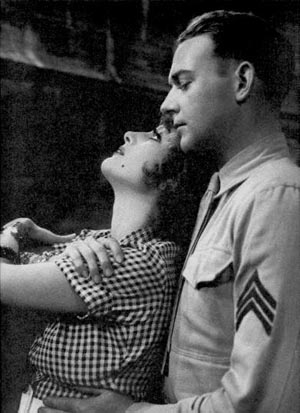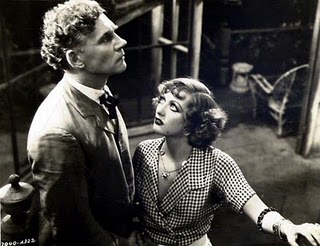
A recent service call at the Portage led us to the service manuals for the early 1930s Western Electric Soundheads currently installed in the cinema, which included the list price, no less than $34,000. This is in 1934 dollars, and given that the only way film could be run at the time (and the only way a respectable repertory house runs film now) was on a two projector changeover system, the cost of the sound heads alone was at the time just under $70,000. This didn’t include the cost of installing the machinery. The manual reminds the exhibitor that though the cost might seem a bit high, Western Electric was offering the best sound reproduction possible. (They were right, of course, the design on those sound heads is very similar to those used in theaters today, about eighty years later as we look at the end of 35mm distribution as an industry standard, and the ones installed at the Portage are still running flawlessly.)
Exhibitors running expensive sound systems in 1932 – and regardless of what system they were using it never would have been cheap – were no doubt quite frustrated with Rain. Most exhibitors, critics, and audiences were at least unimpressed with the film, Variety called it a mistake, and Joan Crawford hated her performance, but the most impressive thing about Rain is the sound of Lewis Milestone recklessly destroying the sound mix with an onslaught of engineered thunderstorms. The dialog is never unintelligible (it helps that everyone is yelling at each other) but every scream and every murmur is abrasive and often downright frightening.
Rain exploits sound in a manner less graceful but equally effective as the synchronized sound version of Milestone’s All Quiet on the Western Front, a film that suggests that the synchronized sound format (essentially an effects track played over a film with intertitles) had a lot more potential than the format’s short life allowed it. Some of the most memorable moments in the synchronized version of All Quiet are a handful of bloodcurdling shrieks. The dialog in this version is suppressed because there is no means to exhibit it, but given the film’s context in the trenches of the Great War, that makes all the more sense. All Quiet on the Western Front is a film about companionship; Rain, in which Joan Crawford plays a south seas prostitute and conversion project of fire and brimstone preacher Walter Huston, is an equally desperate film about isolation, and it shrieks and cries as loudly as a war film but without any sense of redemption, comfort, or sympathy.

Looking back Rain seems more like a skillfully mangled Val Lewton production than a pre-Code proto-exploitation picture. It’s too pessimistic to keep its audience comfortable, but the film moves with an omniscience that suggests that some greater force might be listening even if the cause is hopeless. One of the most impressive sequences in the film features Crawford screaming at Huston as he prays for her soul, neither of them is listening to each other, the camera crawls up to watch them from above and for a brief moment nothing else could seem quite so desperate. Rain has tight corners but is never static or careless. The preacher is full of it, the prostitute cannot be saved, the weather sucks, but the whole arrangement is oddly moving.
The Northwest Chicago Film Society will screen a 16mm print of Rain from Radio Cinema Film Archive on Wednesday, July 27 at the Portage Theater at 7:30. Please see our current calendar for more information.
